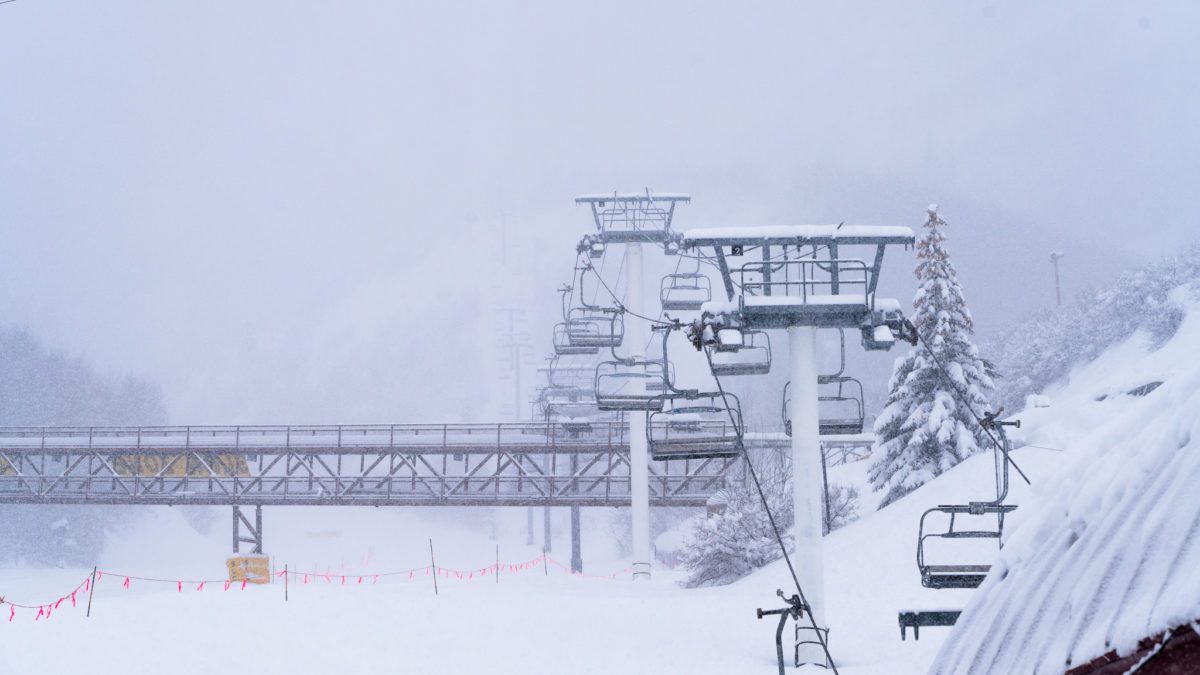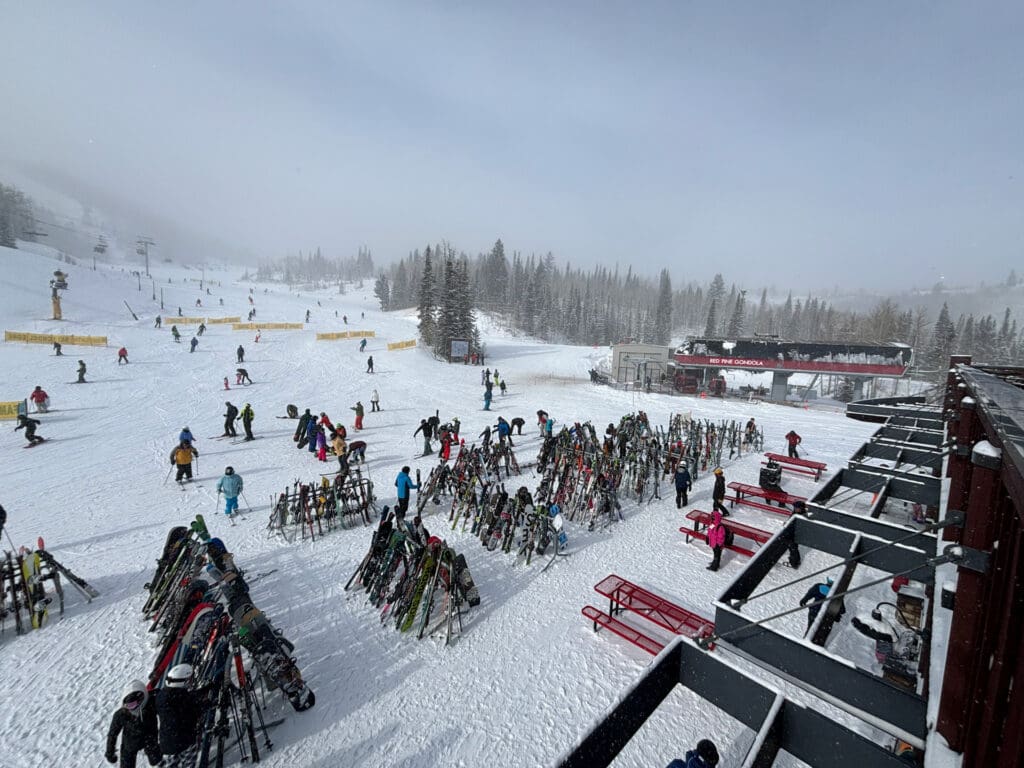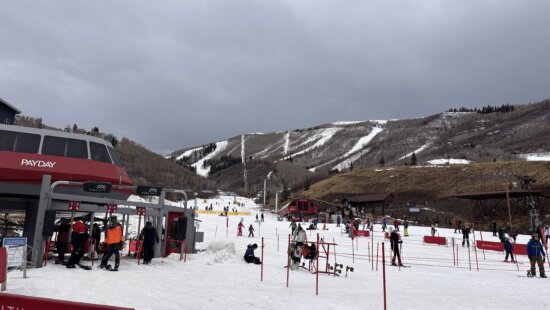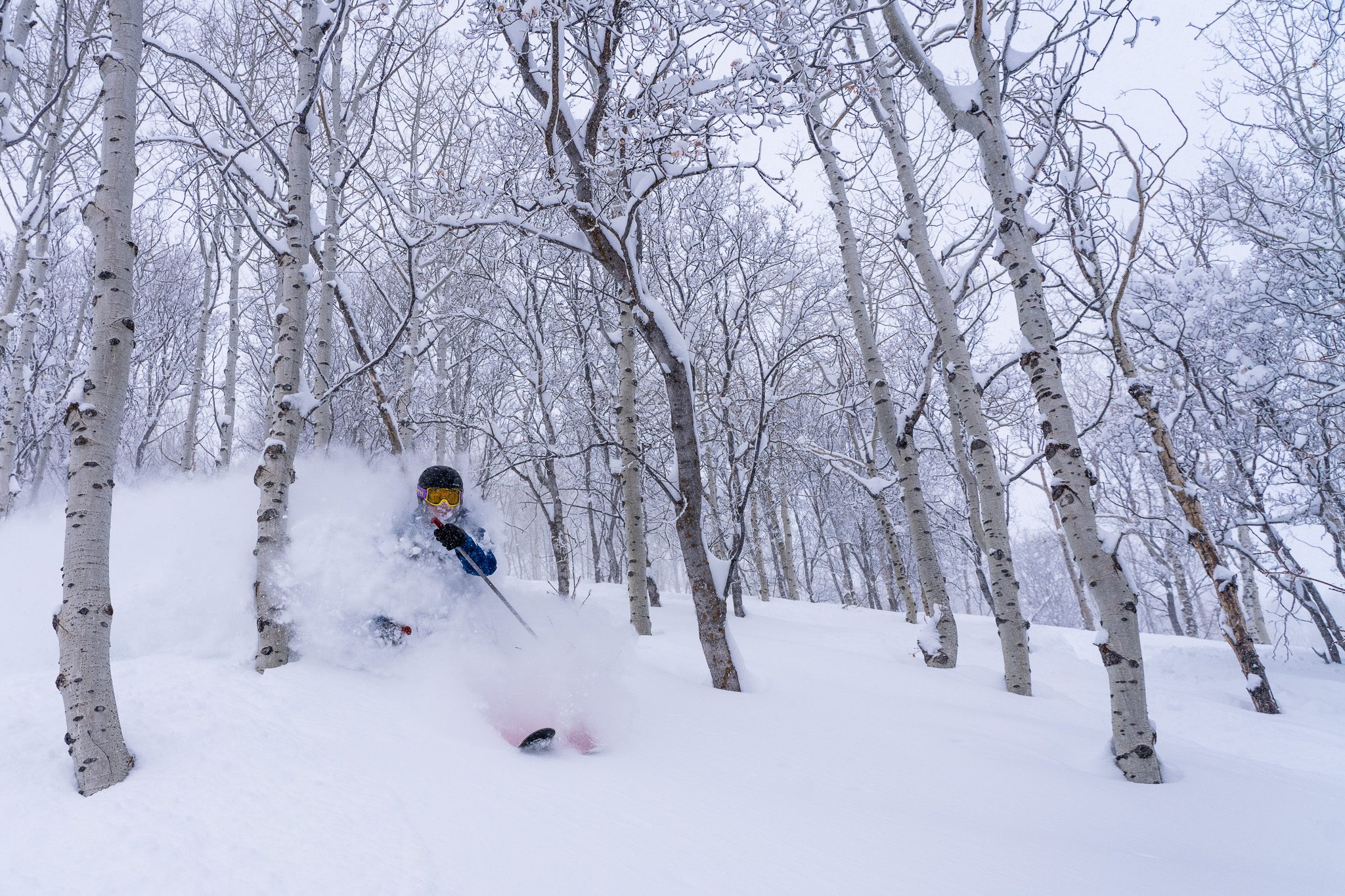Snow
Epic pass sales drop, revenue rises: Vail Resorts reports mixed start to ski season

A Pow day at Park City Mountain after receiving 23 inches of snow in 24 hours in February of 2023. Photo: Courtesy of Vail Resorts / Kyler Tingey.
BROOMFIELD, Colo. — Vail Resorts, operator of Park City Mountain and 42 other ski destinations in North America and abroad, released its first-quarter financial results this week. The report revealed a combination of growth and challenges as the company navigates the early stages of the 2024/2025 ski season.
The company noted a 2% drop in season pass sales compared to the prior year, though revenue from those sales increased by 4%, due largely to an 8% price increase. Vail Resorts attributed the decline in sales to fewer new pass buyers, rather than a clientele loss.
The price of a full Epic Pass increased to $982, compared to $909 last year, reflecting a $73 increase. Similarly, the Epic Local Pass is now priced at $731, up $55 from the previous year.
Vail Resorts CEO Kirsten Lynch said the company expects to have approximately 2.3 million guests committed to their resorts in advance of the season in non-refundable, advance-commitment products this year, which are expected to generate over $975 million of revenue and account for approximately 75% of all skier visits.
Lynch also said Mother Nature has helped early season business, allowing earlier than anticipated openings in Whistler Blackcomb, Heavenly, Northstar, Kirkwood, and Stevens Pass. Early season conditions have also enabled Vail’s resorts in the Rockies to open with lots of terrain compared to last year. Vail’s legendary back bowls opened the earliest since 2018. Meanwhile, on the east coast typical early-seasonal variability is at play, but all resorts there are planned to open ahead of the holidays.
Investments target Park City Mountain
As part of a broader plan to improve its properties, Vail Resorts announced $250M in capital investments across all their resorts. Park City Mountain and Vail Mountain will receive about $200M to improve Canyons Village (Park City) and West Lionshead Village, a fourth base village at Vail in 2025. A new 10-person gondola has replaced the Sunrise lift at Canyons Village, with the goal of improving access and reducing wait times. Additionally, expanded dining options for ski and ride school guests, and improvements to beginner terrain near the Red Pine Lodge are designed to enhance the learning experience for guests.

To address parking and traffic issues, the resort also plans to build a 1,800-space parking garage at Canyons Village. These developments coincide with Park City Mountain’s preparations to host events for the 2034 Winter Olympics.
The remaining $50M is capital improvements will be funneled into Vail Resorts’ European resorts like newly acquired Crans Montana in Switzerland.
Revenue grows, but challenges persist
Vail Resorts reported $260.3 million in total revenue for the quarter, a slight increase from the same period last year. However, lift ticket revenue for the quarter declined by nearly 11%, due in part to record-low snowfall in Australia, the report said, which forced some resorts to close early.
Lodging and dining revenue rose by nearly 7%, buoyed by favorable weather and stronger visitation at several North American properties, including Park City Mountain.
The company is in the midst of a two-year effort to streamline operations, with a goal of saving $100 million annually by 2026. For the full fiscal year, Vail Resorts expects to earn between $838 million and $894 million, citing higher prices, cost-cutting measures, and strategic investments as key drivers.


















